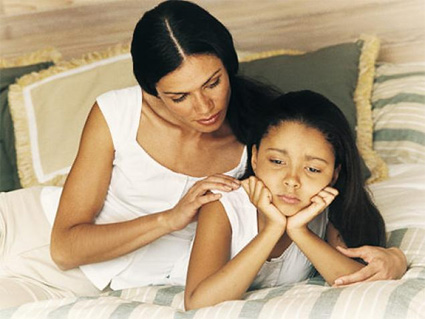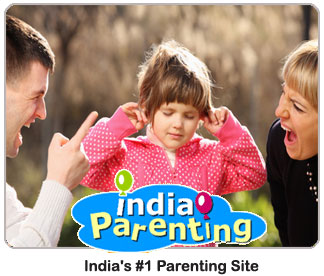Treatments for depression in children are effective only when the child is treated in a timely manner. Treatment options for childhood depression depend on the severity of condition. Learn more about the treatments for children suffering from depression. Children can get depressed due to a variety of reasons. As parents you need to closely observe your kids as they grow up. If ever you notice any symptom that can be associated with depression, you must get careful. Seek the advice of a counsellor or a child psychiatrist and get your child treated in a timely and effective manner. If any symptom of depression lasts for over 10 days to a fortnight, you must urgently take your child to a doctor. Before this you obviously need to ensure that these symptoms are not triggered by any physical reasons. In this articleHow is Depression Determined?PsychotherapyAntidepressantsHow is Depression Determined? Depression is a very relative condition which makes it all the more difficult to generalise. One cannot go about with a certain test be it a medical or a psychological that can ascertain, that yes, the child is suffering from depression. Certain tools are used in the form of questionnaires that are asked to be filled in by the parents and the child. These are to accumulate personal information and when combined they can prove to be quite useful in determining on whether the child is under depression or not. Additional information are gathered from the child’s teachers, classmates and playgroup friends in order to study whether the said symptoms are persistent during the various activities that the child is involved in throughout the day. And study whether there is any noticeable change in the previous behaviour of the child and the present. Treatment Options for Depression in Children There are two principle ways to treat depression in children – Psychotherapy can be recommended either singularly or in combination with the use of antidepressant medicines. There have been diverse opinions amongst psychiatrists that which one of these should be ideally carried out first. They have their own theories, but if we look at the researches, it can be observed that a combination treatment is found to be by far the most effective for treating depression in children. Depending upon the severity of condition, the doctor can decide to carry out the treatment in an informal outpatient setting. But according to need, hospital care might be an effective alternative. The treatment plan is always customised to best suit the severity of symptoms noticeable in the child. Besides, another vital point is also considered – the probable impact of the treatment on the later years of child. 1. Psychotherapy – As a depression treatment option, cognitive behavioural therapy is found to be quite effective. Amongst the common symptoms, you will find that in a depressed state, the child harbours a very unhealthy and negative impression regarding themselves and their immediate environment, this includes their experiences on every field so far, too. The objective of cognitive behavioural therapy, the child is made adaptable to a change in outlook. They are taught and encouraged to have a more positive outlook, which is much healthier. This wards off the negative mindset gradually and effectively. The child is relieved of depression and along with that the family is also found to gain a lot by it. The overall environment of the entire family becomes much happier. 2. Antidepressants – The cure suggested for childhood depression here is through the administration of antidepressant drugs. This treatment option is often used when psychotherapy does not yield the desired results. Since most of the depression symptoms are mood symptoms, if left clinically untreated for long, the child can lapse into severe mood disorders that border on suicidal attempts. So such tendencies or the probability of the development of such tendencies can be dealt with the administration of antidepressant drugs. Finally, whatever be the treatment course, the doctors need to consider carefully the possible benefits and risks involved in the treatment, not only at the moment but take into consideration the future of the child too. More often than not, the treatment procedure does impact the life of the kid as he or she grows up. So, the benefits should always outweigh the risks.
Treatments for depression in children are effective only when the child is treated in a timely manner. Treatment options for childhood depression depend on the severity of condition. Learn more about the treatments for children suffering from depression. Children can get depressed due to a variety of reasons. As parents you need to closely observe your kids as they grow up. If ever you notice any symptom that can be associated with depression, you must get careful. Seek the advice of a counsellor or a child psychiatrist and get your child treated in a timely and effective manner.
If any symptom of depression lasts for over 10 days to a fortnight, you must urgently take your child to a doctor. Before this you obviously need to ensure that these symptoms are not triggered by any physical reasons.
How is Depression Determined?
Depression is a very relative condition which makes it all the more difficult to generalise. One cannot go about with a certain test be it a medical or a psychological that can ascertain, that yes, the child is suffering from depression.
Certain tools are used in the form of questionnaires that are asked to be filled in by the parents and the child. These are to accumulate personal information and when combined they can prove to be quite useful in determining on whether the child is under depression or not.
Additional information are gathered from the child’s teachers, classmates and playgroup friends in order to study whether the said symptoms are persistent during the various activities that the child is involved in throughout the day. And study whether there is any noticeable change in the previous behaviour of the child and the present.
Treatment Options for Depression in Children
There are two principle ways to treat depression in children –
Psychotherapy can be recommended either singularly or in combination with the use of antidepressant medicines. There have been diverse opinions amongst psychiatrists that which one of these should be ideally carried out first. They have their own theories, but if we look at the researches, it can be observed that a combination treatment is found to be by far the most effective for treating depression in children.
Depending upon the severity of condition, the doctor can decide to carry out the treatment in an informal outpatient setting. But according to need, hospital care might be an effective alternative. The treatment plan is always customised to best suit the severity of symptoms noticeable in the child. Besides, another vital point is also considered – the probable impact of the treatment on the later years of child.
1. Psychotherapy –
As a depression treatment option, cognitive behavioural therapy is found to be quite effective. Amongst the common symptoms, you will find that in a depressed state, the child harbours a very unhealthy and negative impression regarding themselves and their immediate environment, this includes their experiences on every field so far, too.
The objective of cognitive behavioural therapy, the child is made adaptable to a change in outlook. They are taught and encouraged to have a more positive outlook, which is much healthier. This wards off the negative mindset gradually and effectively. The child is relieved of depression and along with that the family is also found to gain a lot by it. The overall environment of the entire family becomes much happier.
2. Antidepressants –
The cure suggested for childhood depression here is through the administration of antidepressant drugs. This treatment option is often used when psychotherapy does not yield the desired results.
Since most of the depression symptoms are mood symptoms, if left clinically untreated for long, the child can lapse into severe mood disorders that border on suicidal attempts. So such tendencies or the probability of the development of such tendencies can be dealt with the administration of antidepressant drugs.
Finally, whatever be the treatment course, the doctors need to consider carefully the possible benefits and risks involved in the treatment, not only at the moment but take into consideration the future of the child too. More often than not, the treatment procedure does impact the life of the kid as he or she grows up. So, the benefits should always outweigh the risks.































